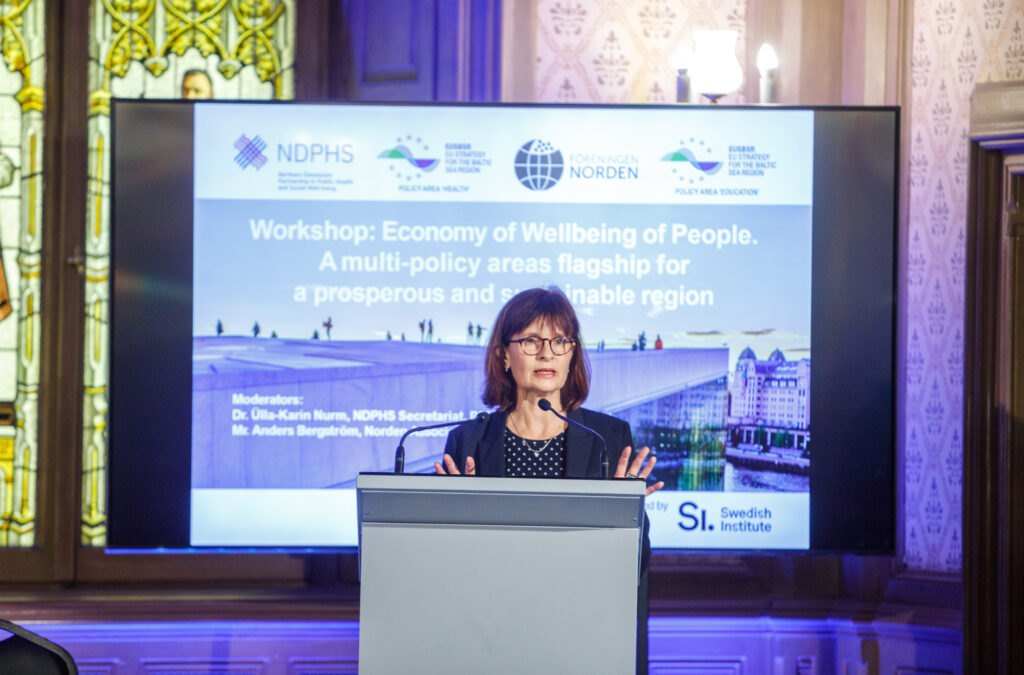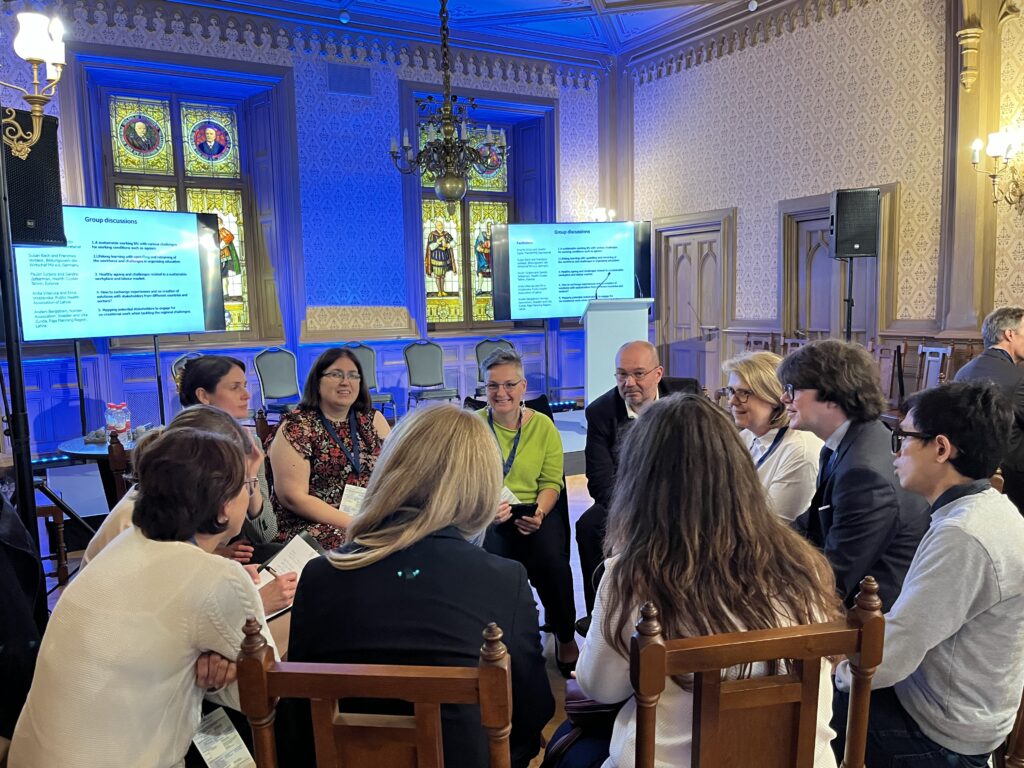Policy Area Health in the EUSBSR Annual Forum 2023
The forum consisted of a series of events, including Policy Area Workshops and the ever-so-important possibilities for networking. Close to six hundred people from twenty countries had registered for the forum, showing the wide interest and support the Strategy holds. The official programme included the joint PA Health (coordinated by the NDPHS Secretariat) and PA Education (coordinated by Association Norden Sweden) workshop with keynotes and discussions revolving around the Economy of Well-being concept and initiatives in the region.

During the workshop, Mr. Pasi Korhonen, Director of EU and International Affairs, Ministry of Social Affairs and Health (Finland) presented an overview of a Wellbeing Economy model which was introduced at the EU level by Finland in 2019. Mr. Korhonen highlighted the benefits of investments in well-being policies and welfare structures. Effective and efficient policy measures on gender equality, education, health promotion and disease prevention, social inclusion, and occupational health and safety were listed to have a significant macroeconomic and microeconomic impact. Important steps in better advocating for the Economy of Well-being will be to gather more data, set indicators, and bring the concept to the global agenda in the UN Social Summit 2025.
The second keynote speaker of the workshop, Ms. Inese Stepina, Deputy Director General, Adviser on EU and International Affairs, Employers’ Confederation of Latvia, introduced the participants to strategic health in all policies approach for active and healthy ageing and presented factors that determine well-being. Ms.Stepina emphasized that well-being refers to a person’s general condition of both – mental and physical health, which are then linked to job satisfaction, engagement, sense of purpose, and intention to stay in the company and contribute to its success. In a region where the number of workers of pre-retirement and retirement age is increasing and the number of young people entering the labor market is decreasing, well-being, quality health care, and appropriate work regimes are of utmost importance.

The workshop was concluded with group discussions where participants shared their thoughts on the topics starting from how they perceive healthy ageing and sustainable working life and what are the challenges of having a work-life balance, to how to find the right project partners, identify synergies and what does co-creation mean at the national and regional level. The discussion groups were facilitated by the “Economy of Well-being for People” (EWP) project partners and the outcomes will feed into the project development.
Text: Zane Vilnite, NDPHS Secretariat
Project coordinators:

The EWP project is financed by:

PA Health receives financial support from the Interreg Baltic Sea Region and is co-funded by the European Union
